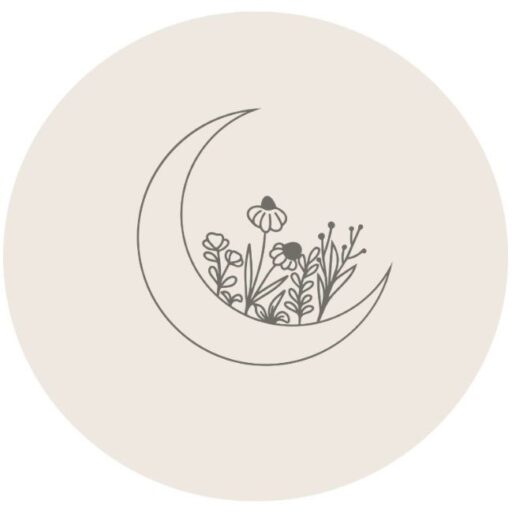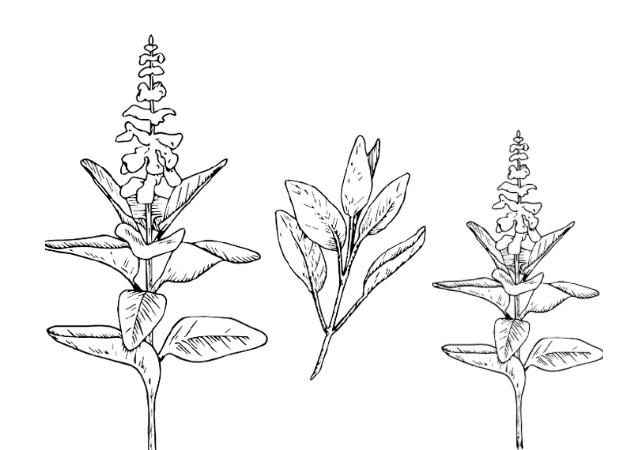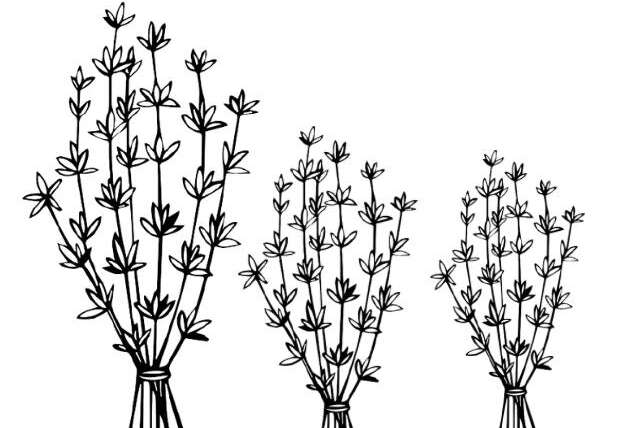“For a long time, sage (Salvia) species have been used in traditional medicine for the relief of pain, protecting the body against oxidative stress, free radical damages, angiogenesis, inflammation, bacterial and virus infection, etc…
…The genus Salvia, commonly known as sage, is the largest member of Lamiacea or mint family containing over 900 species throughout the world.[1,2] The plants are mostly aromatic and perennial [Figures [Figures11 and and3],3], with flowers in different colors [Figure 2].[3] Many species of Salvia, including Salvia officinalis (common sage), are native to the Mediterranean region and some of the Salvia species have been used worldwide as flavoring spices as well as traditional herbal medicine.[3,4]…
Sage tea has been traditionally used for the treatment of digestive and circulation disturbances, bronchitis, cough, asthma, angina, mouth and throat inflammations, depression, excessive sweating, skin diseases, and many other diseases.[5,6,7] Salvia essential oils have been used in the treatment of a wide range of diseases like those of the nervous system, heart and blood circulation, respiratory system, digestive system, and metabolic and endocrine diseases. In addition, sage essential oil has been shown to have carminative, antispasmodic, antiseptic, and astringent properties.[8,9]…
…The essential oil of Salvia species has various compositions depending on the genetic, climatic, seasonal, and environmental factors.[10] Some chemical compounds like flavonoids, terpenoids, and essential oils are present in different species of Salvia [Figure 4].[3] Essential oils are very important sources for the screening of anticancer, antimicrobial, antioxidant, and free radical scavenging agents.[11] S. officinalis (common sage) is considered to have the highest amount of essential oil compared to the other species of Salvia.[5,12]…
…Amongst many herbal extracts, Salvia species are known for the beneficial effects on memory disorders, depression, and cerebral ischemia.[25,26] S. officinalis (common sage), Salvia lavandulaefolia (Spanish sage), and Salvia miltiorrhiza (Chinese sage) have been used for centuries as restoratives of lost or declining mental functions such as in Alzheimer’s disease (AD).[25,26,27] In AD, the enzyme acetyl cholinesterase (AChE) is responsible for degrading and inactivating acetylcholine, which is a neurotransmitter substance involved in the signal transferring between the synapses. AChE inhibitor drugs act by counteracting the acetylcholine deficit and enhancing the acetylcholine in the brain.[28] Essential oil of S. officinalis has been shown to inhibit 46% of AChE activity at a concentration of 0.5 mg/ml.[28]…
…A study shows that S. officinalis improves the memory and cognition, and with increasing dosage, the mood gets elevated as well as alertness, calmness, and contentedness increase.[29] A randomized, double-blind clinical study has shown that an ethanolic extract from common sage (S. officinalis) as well as Spanish sage (S. lavandulaefolia) is effective in the management of mild to moderate AD, and study on patients did not show any adverse effect on them on taking sage.[30,31] Administration of S. lavandulaefolia (Spanish sage) has been reported to be effective in improving the speed of memory and mood. Salvia essential oil also has been reported to improve immediate word recall.[27]…
…Sage (S. officinalis) has been traditionally used to treat sweating and menopausal hot flashes, as well as to alleviate the associated menopausal symptoms.[42] The efficacy of sage for the treatment of hot flashes during menopause was proven by a multi-center open clinical trial.[6] A fresh sage preparation demonstrated clinical value in the treatment of hot flashes and associated menopausal symptoms.[42] Once-daily application of the fresh sage extract demonstrated good clinical value in terms of safety, efficacy, and tolerability in the treatment of menopausal hot flashes and climacteric symptoms, validated by statistical analysis and the clinically relevant verdict of patients and physicians.[42] The study findings provide a scientific rationale for sage’s use in folk medicine, offering a valuable option for patients and healthcare providers seeking alternative approaches for the treatment of menopausal hot flashes and climacteric complaints.[42]…
…In recent decades, with the increase in pharmacological knowledge about the beneficial effects of sage, especially S. officinalis, these herbal medicines with antibacterial, antioxidant, anti-inflammatory, free radical scavenging, and antitumor activities have been found to be very effective in the development of novel natural drugs to prevent, control, and treat many minor health problems as well as more serious and complicated diseases such as diabetes, Alzheimer’s, and cancer…”
“Chemistry, Pharmacology, and Medicinal Property of Sage (Salvia) to Prevent and Cure Illnesses such as Obesity, Diabetes, Depression, Dementia, Lupus, Autism, Heart Disease, and Cancer.”
Mohsen Hamidpour,1 Rafie Hamidpour,2 Soheila Hamidpour,3 and Mina Shahlari4


